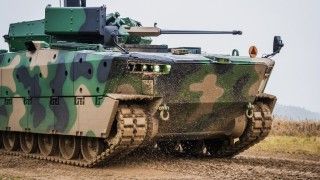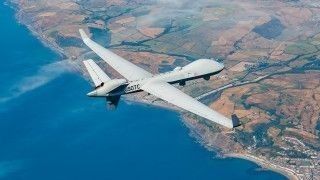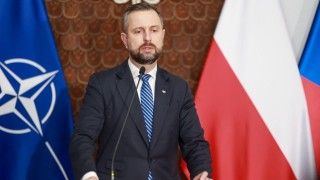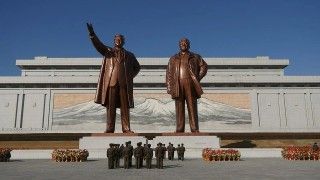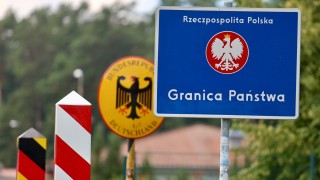- WIADOMOŚCI
- WYWIADY
- ANALIZA
One Year of Tusk’s Government. Gen. Koziej: Strategic Continuity Maintained at the Ministry of Defence
It has been a year since the coalition government was formed and the Ministry of Defence was taken over by Władysław Kosiniak-Kamysz, the leader of PSL. The Ministry of Defence (MON) continues modernization programmes initiated by the previous administration, and the military remains engaged in supporting border services on the eastern frontier. The ministry has also dissolved the Smolensk Subcommittee.

Photo. Sgt. Tashera Pravato/U.S. Army National Guard
This continuity is highly praised by retired Brigadier General Stanisław Koziej, former head of the National Security Bureau (BBN) and deputy defence minister, now an academic lecturer. He notes, however, that procurement should be reviewed regarding the volume of orders, and plans should be adjusted if necessary. He highlights the cessation of using the military for partisan politics and improved relations between the MoD and the president’s BBN as significant positives. The lack of updated strategic documents, however, is a notable shortfall.
Procurement Continuity
In August, the MoD ordered 96 AH-64E Apache helicopters for approximately PLN 40 billion. This request originated in 2022 under Minister Mariusz Błaszczak. The ministry also signed a second executive contract for the South Korean K239 Chunmoo rocket artillery system. Poland will pay around PLN 6.5 billion for 72 launchers, several thousand guided missiles, a logistics and training package, and technology transfer for domestic production of launcher modules.
Negotiations are underway for a second implementation agreement for 180 K2 tanks and support vehicles. According to the Armament Agency, delivery schedules are on track, despite pending negotiations between PGZ (Polish Armaments Group) and Hyundai Rotem on Polish industrial involvement in producing these tanks.
The current defence minister has repeatedly pledged to continue modernization programs initiated by the previous team, emphasizing that this approach contrasts with that of PiS.
Expansion of the Armed Forces
The planned change of command for the Territorial Defence Forces (WOT), initially scheduled for 14th August, has been postponed. The plan was to place WOT under the Chief of the General Staff, ending their direct subordination to the defence minister. The General Staff justified the postponement by citing ongoing discussions about the future command system, the president’s proposed legislation on state governance during external threats, and feedback from the certification process WOT underwent in June. Another reason was the incomplete formation of WOT brigades.
The ministry has committed to further developing the territorial military service project and continues recruitment for other service forms, including voluntary basic military service, introduced by the 2022 Homeland Defence Act.
To encourage employers to hire WOT volunteers and reservists, the MoD proposed legislation offering tax breaks ranging from PLN 12,000 to PLN 36,000, depending on the employee’s service duration and the company’s size. This law, passed by Parliament and signed by the president in October, also grants public procurement preferences to companies employing Territorial DefenCe and Army Reserve soldiers.
In August, legislation supporting soldiers and officers defending the border took effect. Drafted by the MoD, this law ensures they are not held criminally liable for improper use of weapons or force if such actions are necessary to repel direct attacks on life, health, or freedom under urgent circumstances.
Support at the Border and Eastern Shield Project
The military continues to support Ministry of the Interior and Administration (MSWiA) forces on the eastern border under Operation Safe Podlasie, initiated in August. MON is a key player in the Eastern Shield project, a PLN 10 billion initiative to build fortifications on the borders with Russia and Belarus. The ministry pledged to respect the environment, using natural obstacles like wetlands and forests and restoring affected areas to natural states that hinder potential aggressors. In May, scientists from the Polish Academy of Sciences (PAN) issued an appeal to protect ecologically valuable areas that could also serve defensive purposes. However, recent media reports highlighted the destruction of these areas by heavy machinery and mass logging, including within a nature reserve near the Bug River. Deputy Minister of National Defence, Cezary Tomczyk, assured during an interview with Tok FM that the military and the “Eastern Shield” project had no involvement in these activities, linking them instead to the Border Guard’s construction of a perimeter system.
Ending the Politicization of the Military
One of the first decisions made by the current Ministry of National Defence (MON) leadership, back in December last year, was to dissolve the Smolensk Subcommittee. The ministry formed a team to assess the committee’s activities. In October this year, the ministry filed 41 complaints with the prosecutor’s office regarding mismanagement, forgery, bribery, and breaches of confidentiality.
When introducing the team in January, the Defence Minister refused to discuss political matters in the presence of soldiers. “This was one of the first positive moves,” said General Stanisław Koziej. “Broadly speaking, there is a positive shift. I especially appreciate the end of using military uniforms for party politics,” he stated in an interview with Defence24.pl. “The politicization of the military had become unbearable, especially during the final years of PiS governance and the election campaign,” he added.
Need for a New National Security Strategy
General Koziej praised the “good relations with the National Security Bureau (BBN) and even an improvement of those”. “It’s somewhat reminiscent of the tradition from my time when Minister Tomasz Siemoniak and I regularly met for »strategic coffee sessions,” he added. However, he noted that despite the good relations and cooperation between the two institutions, „we are still waiting for an update to the National Security Strategy, even though the president’s recommendations were issued quite a while ago.” “Work on the new National Security Strategy has been ongoing for a long time, and it’s extremely important. A significant weakness of our national security system, including our defence system, is that it operates without an updated strategy that aligns with the conditions radically changed by Russia’s aggression against Ukraine. This is a completely new world. It’s evident that we are in an aggressive, second Cold War, and a new strategy is needed for the conditions of this new Cold War. It’s regrettable that the Ministry of National Defence, together with the BBN, has not managed to finalize this, despite the good relations between the heads of both institutions and their practical, substantive collaboration,” Koziej stated.
He also referred to “the grand procurement programs left by the previous minister, which are generally being continued.” “It’s good that strategic continuity in maintaining and developing the army has been signaled and demonstrated. This is important. It shows a different quality compared to the previous administration, which, as we remember, broke strategic continuity at the very beginning. They announced that they did not recognize the previous 2014 strategy or modernization programs, recall the withdrawal from purchasing Caracal helicopters or the delays in acquiring the Patriot system. The current team presents a completely different, pro-state approach to strategic continuity in resolving fundamental issues concerning the development of the armed forces,” he assessed.
„This, again, prompts reflection. I expected that as part of this continuity, there would be a thorough evaluation of these programs, an audit, and that not everything would be mechanically continued. Many of the programs initiated under the previous government raised, and still raise, substantive doubts: where they originated, why these specific procurement volumes were chosen, whether they were based on operational analysis, whether they were prepared and proposed by the General Staff and implemented into practice for managing the armed forces« development, or whether they resulted from certain arbitrariness, voluntarism in managing the ministry by previous ministers, especially the last defence minister, who endorsed these programs,” Koziej said.
What was missing was an in-depth evaluation of these programs from a strategic and operational perspective, conducted purely from a substantive point of view, and possibly a revision of some priorities and decisions.
Brig. General, (Ret.) Stanisław Koziej
National Defence University
Among the positives, Koziej noted the announced transformation of the War Studies University into an institution focused on national security, not just military matters. “The proposal to prepare legislation for transforming the War Studies University into a National Defence University reflects a modern approach, an understanding that we are dealing with integrated, cross-sectoral, multidomain security. Consequently, there is a need for an analytical and educational center dedicated to integrated security. I hope that the direction of reforming military education, particularly the War Studies Academy, will follow this path and that the reforms will have long-term implications for preparing personnel not only for commanding the armed forces but also for managing integrated national security,” he added.
According to the general, it is essential to launch studies on integrated security, with courses attended by integrated groups of generals, diplomats, representatives of special services, police, other uniformed services, and public administration. “All political parties should be interested in sending their people to such studies, with the assumption that when they come to power, graduates of these courses will take positions related to security, including roles in the Ministry of National Defence. The goal is to avoid situations where a party appoints someone as a minister or deputy minister who has never dealt with these issues. After more than three decades of operating in democratic conditions, this should no longer happen. What was acceptable in the 1990s should be unthinkable in the third decade of the 21st century,” Koziej assessed.
In his opinion, such a university should not be a departmental institution but a cross-sectoral one, potentially operating under the patronage of the prime minister or president. “This would prevent it from being confined to just one department, naturally focused on its own issues. Such a thoughtfully positioned defence university should be defined in the legislation establishing the institution.”













